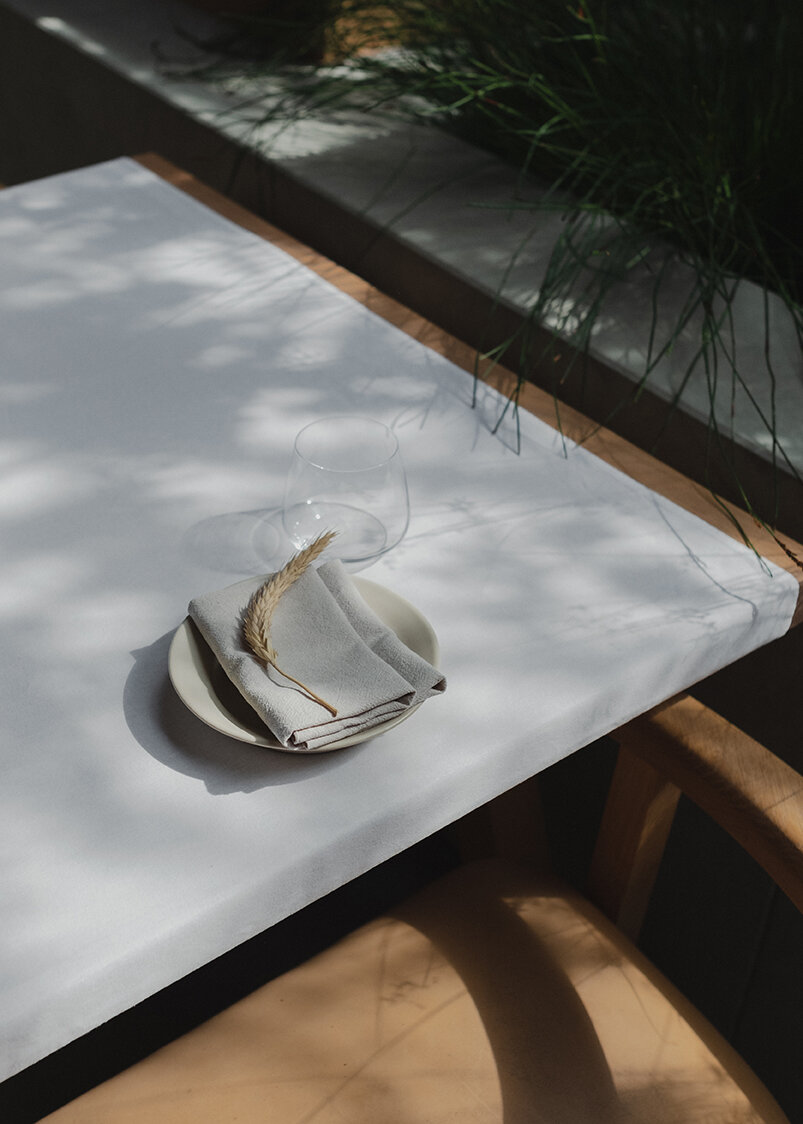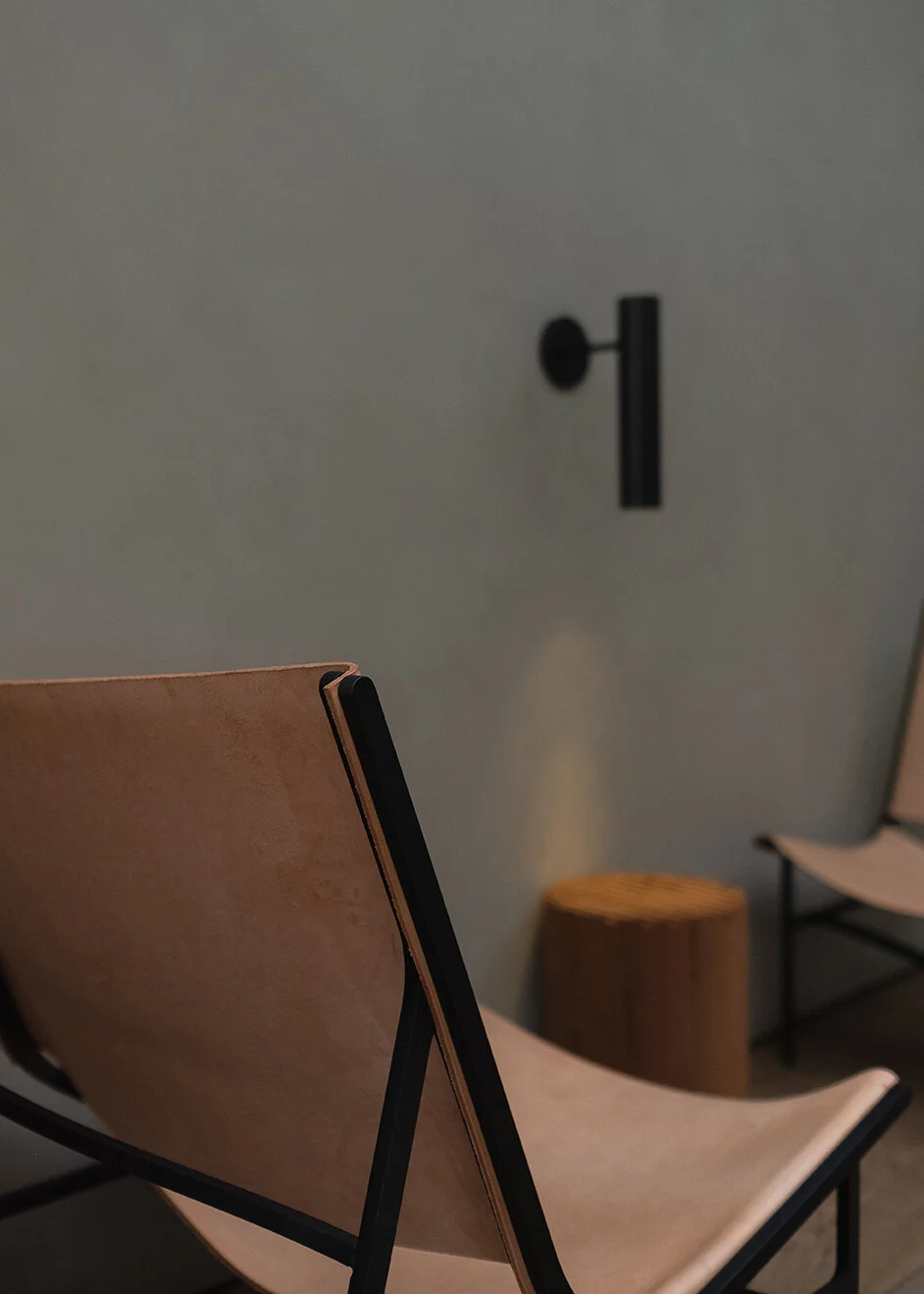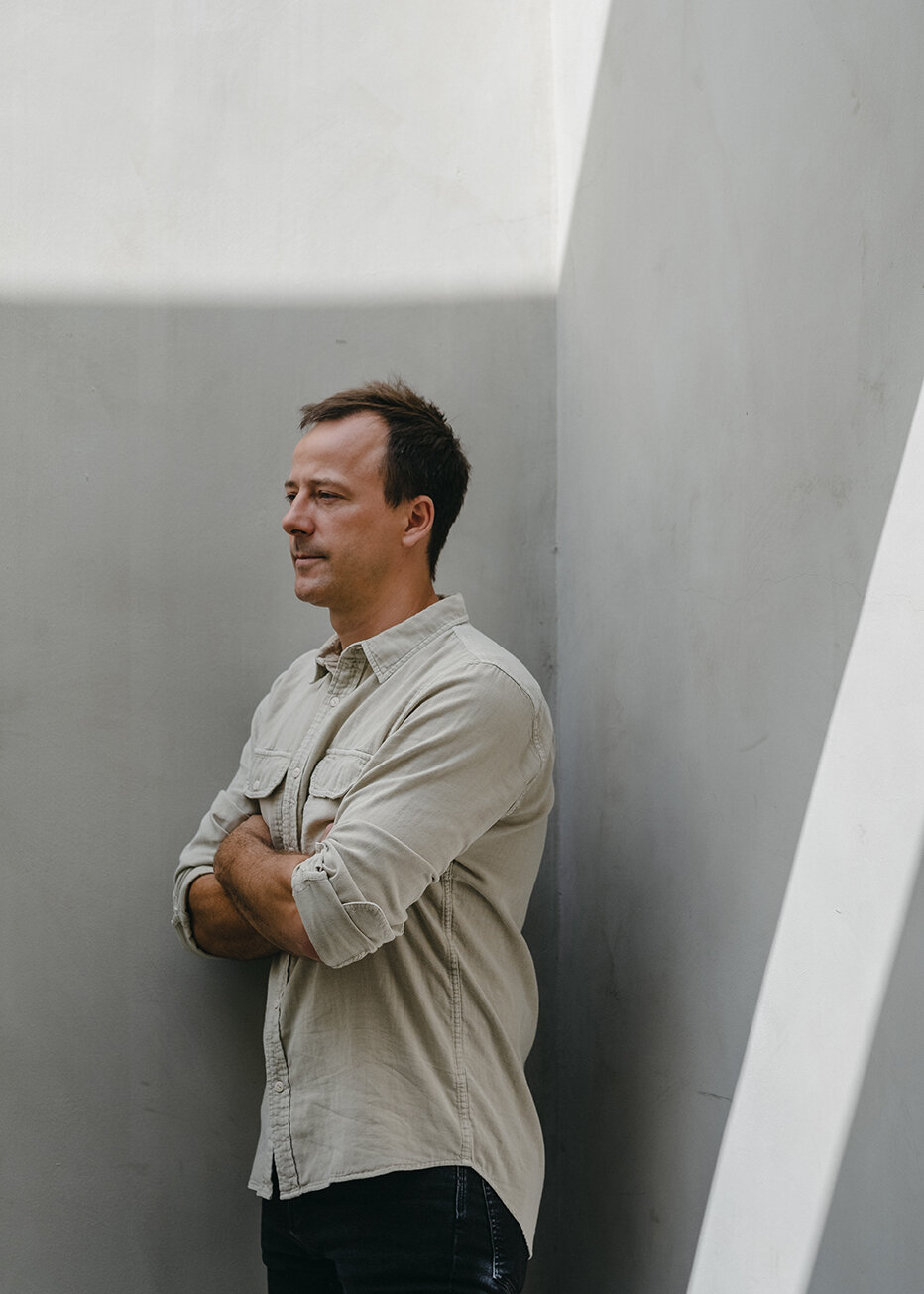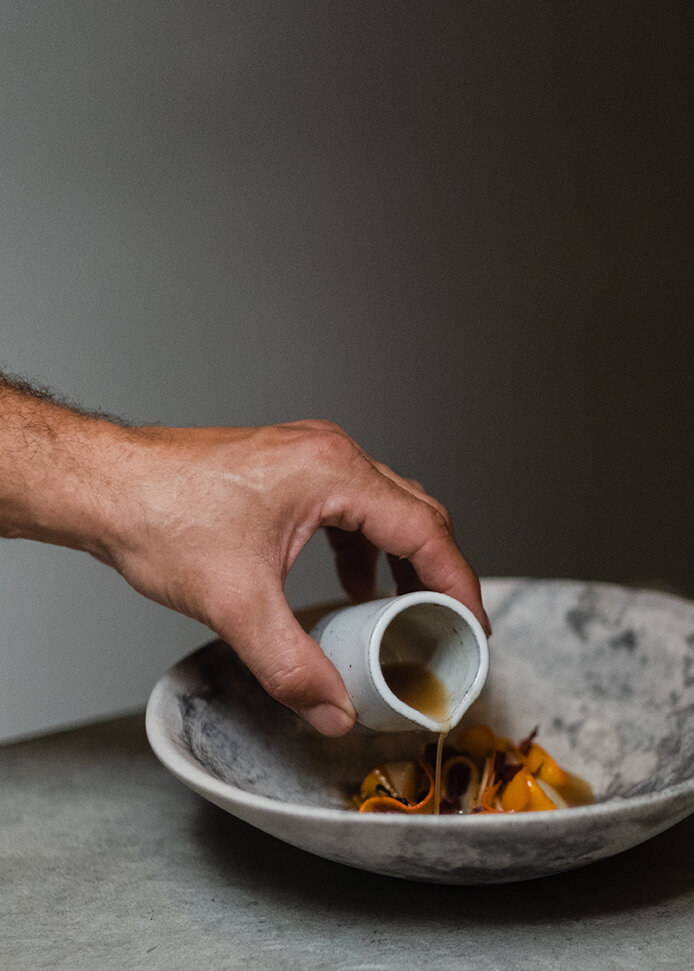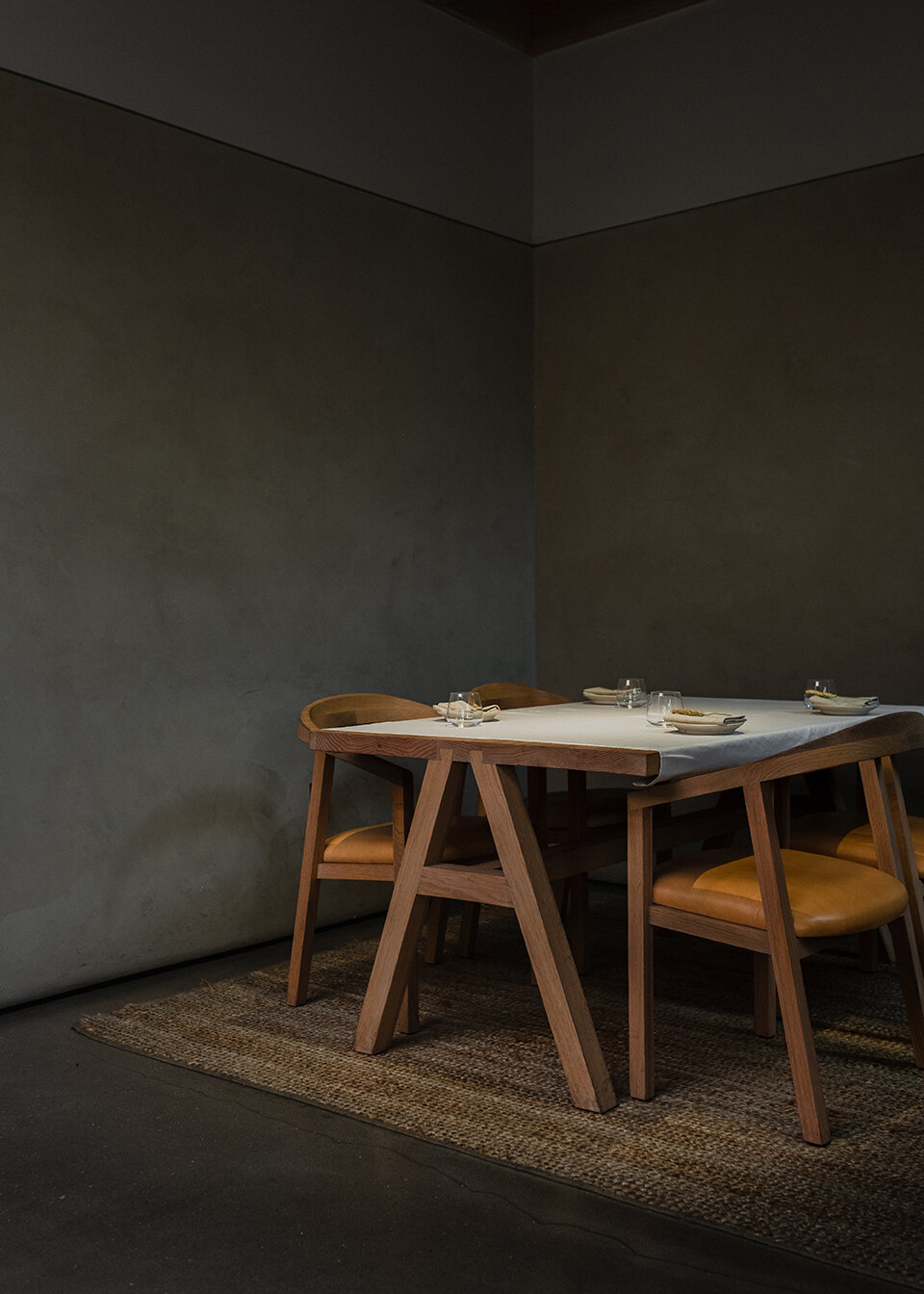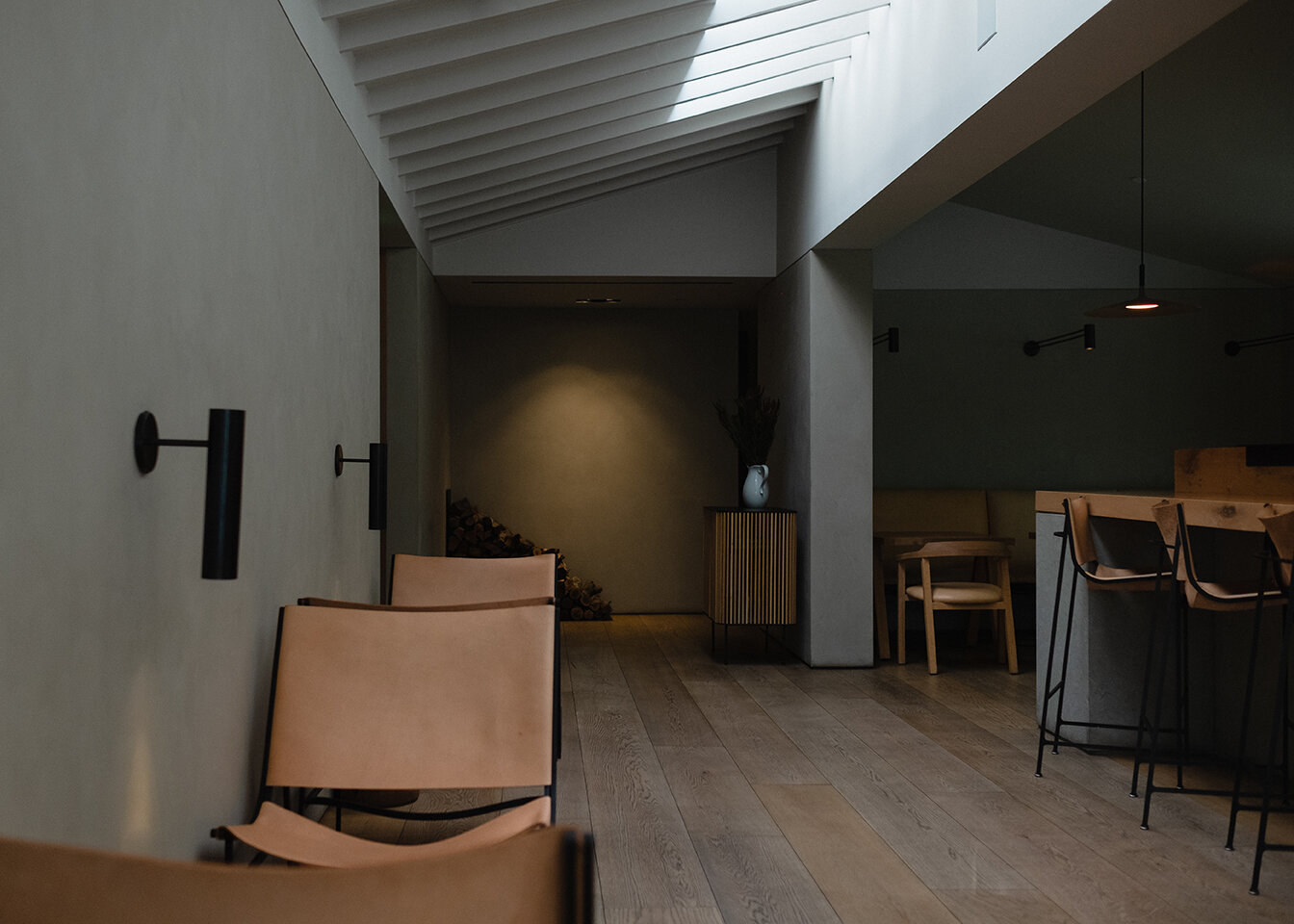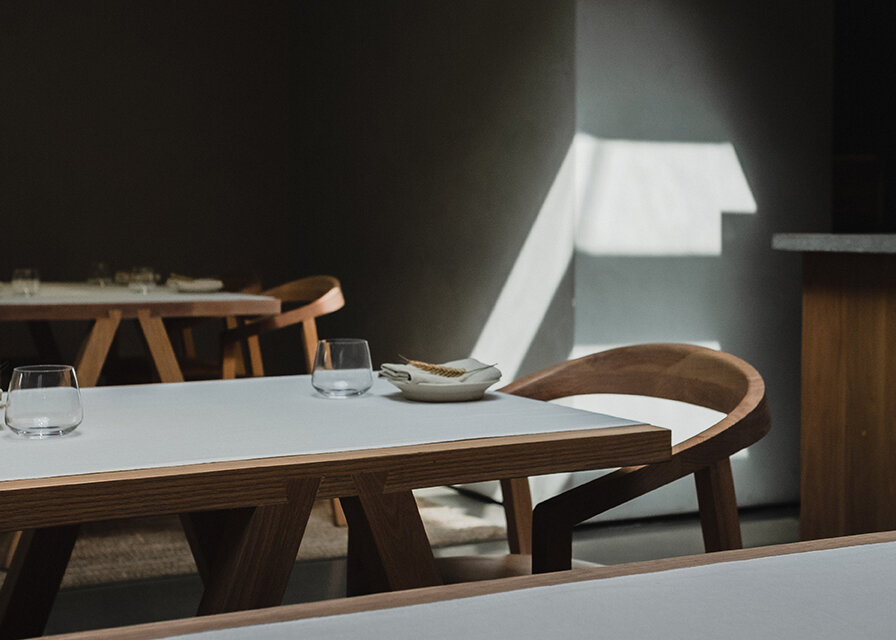Auburn: An Interview with Eric Bost
Photography by Elizabeth Carababas
How did you come to start Auburn?
The idea of the menu format was born while I was working with Guy Savoy in Singapore. To me, the idea was really about doing something that was removing the rules of fine dining, giving the guest choice and flexibility, and to value the guest in the best way possible by putting them in control all while still maintaining a level of fine dining so that people knew what to expect. When I moved to LA, the concept came to life through discussions with a business partner who was supportive of my idea and then we found the restaurant space. I felt like Auburn was a perfect fit for LA with the creative industries here and how people in LA value unique perspectives. After we put the team together, we worked to find partners who understood the vision for the restaurant.
What was the thinking behind the interior design of the restaurant and who did you bring on board?
The thought process was to make people feel comfortable immediately, and then build a very positive energy in the restaurant for both customers and staff. Part of that was to bring in as much light and vegetation as we could. We wanted to build a shared sense of space, but also compartmentalize the restaurant to allow a sense of discovery of the building and allow for multiple ways to dine. We’re lucky to have worked with Jon and Masa Kleinhample of Klein Agency on the design of the restaurant. They understood my vision immediately and we hit it off well from the start.
What’s one of your go-to recipes when you cook in your home kitchen?
Chicken pot pie because there’s never enough time to cook at home, so we use what’s already in the fridge and we usually always have a roast chicken. We also have a few frozen excess chicken carcasses in the freezer, which I’ll use to pressure cook into a chicken stock. Then, I’ll build a velouté with the chicken stock and grilled vegetables and will add the roast chicken from the fridge to the velouté. My son Ethan doesn’t like crust on the pot pie, so we’ll usually have chicken pot pie with just rice and chicken velouté and vegetables in it.
You have to be truthful with yourself about your weaknesses and strengths so cooking in Europe influenced this and helped me find my truth.
What’s your earliest food memory from your childhood?
Some of my fondest food memories stem from when I was younger with my grandmother at her lake-house. She would make her own sourdough bread and always have the starter. She’d also make her own chicken casserole, which is almost the exact same thing as my go-to chicken pot pie recipe. My grandmother was very much a family cook and was always cooking for a lot of people, so she did these big plates since it was a festive and familial occasion.
How did your time in Europe influence the way you cook and the flavours you use at Auburn?
It influences the technique and the rigor. When I was working in Europe, it pushed me to be hyper-focused on finding the best raw material. In France, everything was so flavourful such as baby lamb from the Pyrenees who had only fed on its mother's milk, fresh truffles, and even carrots. To be so close to product like that, it made me focus on supply chain, sourcing, finding the best farmers, and the best quality of product to work with, and it made me think about what makes those products interesting and then trying to highlight those points. It was technique wise in looking at layering and building sauces and rigor in a large team format and looking at how we can execute something that’s manageable from a time perspective for the guest, which takes a lot of people and coordination. At Auburn, we have a very clean hybrid of line system and European brigade system, so it operates like a brigade but the way it functions from a cooking perspective kind of resembles an American format. Also, being in Europe made me have to rely on my own palate and my own judgement to be confident in what I thought was best at the moment. I went into the kitchen as an American in a French kitchen and had to be the low man on the totem pole, then had to fight every day to gain respect and integrate into the team. When I started to manage a team, I had to be sure that what I was saying and doing was correct. It also propelled me into a position to be able to feel comfortable with the decisions I was making so that the guest would appreciate it and benefit. You have to be truthful with yourself about your weaknesses and strengths so cooking in Europe influenced this and helped me find my truth.
What are some restaurants that are inspiring you right now?
I think anyone doing something built off of quality and finding their own voice is very interesting to me. Typically the people I gravitate to have ties into European flavour profile or technique, but have also developed something unique. I think Christian Puglisi of Relae in Copenhagen has done an amazing job and his book, Book of Ideas, is a great insight into the way he’s approaching food. I also think a lot of the things he’s doing resonate with our team as cooks in sources of acid and flavour and looking not always to put the most expensive product on the plate, but trying to force yourself to be creative with more modest product. Another chef is Dave Pynt of Burnt Ends in Singapore. To come up with something built off fire is incredibly unique, plus he has an amazing energy. He’s done a phenomenal job and he’s just a solid cook and person. On the West Coast, it’d have to be Christopher Kostow at Meadowood whose food defines Napa Valley, and he was able to draw out something that feels perfect for that place. Kyle Connaughton of Single Thread in Sonoma is also incredible. He finds an identity between Japan and the US and his background and farm and elegance. He has constructed this restaurant and hotel into something so unique, delicious and beautiful based on this interesting mix of identity.
Do you have any upcoming events or collaborations that you’re looking forward to?
In this first phase since opening, we’re concentrating on making sure business, food, and service are as great as they can be and then events and collaborations will come in our next stage.

